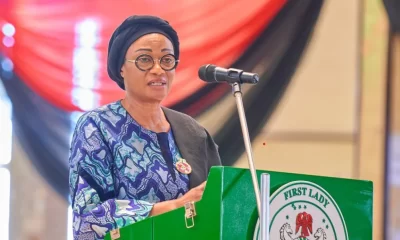The Nigerian Communications Commission (NCC) is yet to respond to a threat handed down by the leadership of the Association of Licensed Telecommunications Operators of Nigeria (ALTON) over abandonment of any Base Transceiver Station (BTS) closed by any state government on grounds of taxes or levies.
Chairman of the networks apex group, Engineer Gbenga Adebayo made it clear that members of ALTON have came to the conclusion that they will no longer engage any state government over closure of their towers over unapproved taxes or levies but rather abandon such site.
However, industry experts say abandoning a closed cell site or BTS means that the particular network operator that owns the site will render it inactive and as such, cannot transmit calls through such site. Such policy amounts to gradual collapse of quality of service within the affected axis over the period of the shut down.
Adebayo linked the new decision to observed rise in the number of BTS closure since the beginning of this year on account of unapproved taxes and levies by some state government agencies.
While noting that “The challenges of absurd taxes on members of ALTON, are majorly from regions including South South; South East and North East,” ALTON boss gave an example of Taraba State, which locked up cell site during last Christmas period over frivolous taxes.
He decried that “Some of the imposed taxes, according to him include aviation clearance, site Inspection Fee, hawking permit, building permit, building fitness, sewage fees, fumigation, sewage fees, refuse collection and disposal, capitation fee, shop rate, among others”.
He argued further “all these imposed taxes would prevent further investments and limit operators’ expansion drive”.
“We hereby warn that any site they close going forward, we are not going to open them and what this means is that such state will experience poor quality of service. NCC should not ask us about quality of service (QoS),” Adebayo averred.
“Presently, we are meant to pay 38 different taxes and levies. Why are we paying tax for generator emission and environmental sanitation? We are ask to pay Environmental sanitation levy of N100million today, you go to a meeting for none payment of this bill and the next day 10 sites are closed. The states in the habit of doing these include states in South-south, South -east, some Northern states and some in South- west except Lagos where the taxes have been harmonized,” he said.
ALTON boss, who appealed to President Mohammadu Buhari to declare telecommunications infrastructure as critical national infrastructure to address the problem of close of cell sites in the country, disclosed that “We have Cybercrime act which is already an act of parliament, a provision of that act demands the president to pronounce certain infrastructure as critical national. We are saying on the strength of that law, the president should give an order declaring telecommunications infrastructure as critical national infrastructure. With that order tomorrow, the game will change”.
Corroborating the position of ALTON, the president, Association of Telecommunications Companies of Nigeria (ATCON) and chief executive of Internet Solutions Group, Engr. Olusola Teniola argued that “our members did not see and still do not see any viability in further bringing in hard earned money into an environment that appears hostile to them. Until Government seriously addresses the multiple taxation issue, multiple regulation and the harmonization of taxes and removal of exorbitant Right of Way charges applied to our members then there wasn’t and there still isn’t any logical or business reason for further investments to be made by them.”
“Just to emphasis the point, the INFRACO licenses were created to address the neutrality in accessibility, affordability and availability of undersea fiber into the hinterland that was the missing piece to ensure ubiquitous broadband infrastructure can be made available to the masses. What we witnessed and the records are there for all to see, is the numerous delays and slowing down of government to assist in the realization of the implementation – without government’s full buy-in there were mixed signals sent to the investment community as to exactly how this was going to be realized,” Teniola noted.

 Entertainment7 days ago
Entertainment7 days ago
 Entertainment4 days ago
Entertainment4 days ago
 Comments and Issues7 days ago
Comments and Issues7 days ago
 Business7 days ago
Business7 days ago
 Comments and Issues7 days ago
Comments and Issues7 days ago
 Health1 week ago
Health1 week ago
 Health5 days ago
Health5 days ago
 Editorial Opinion1 week ago
Editorial Opinion1 week ago

